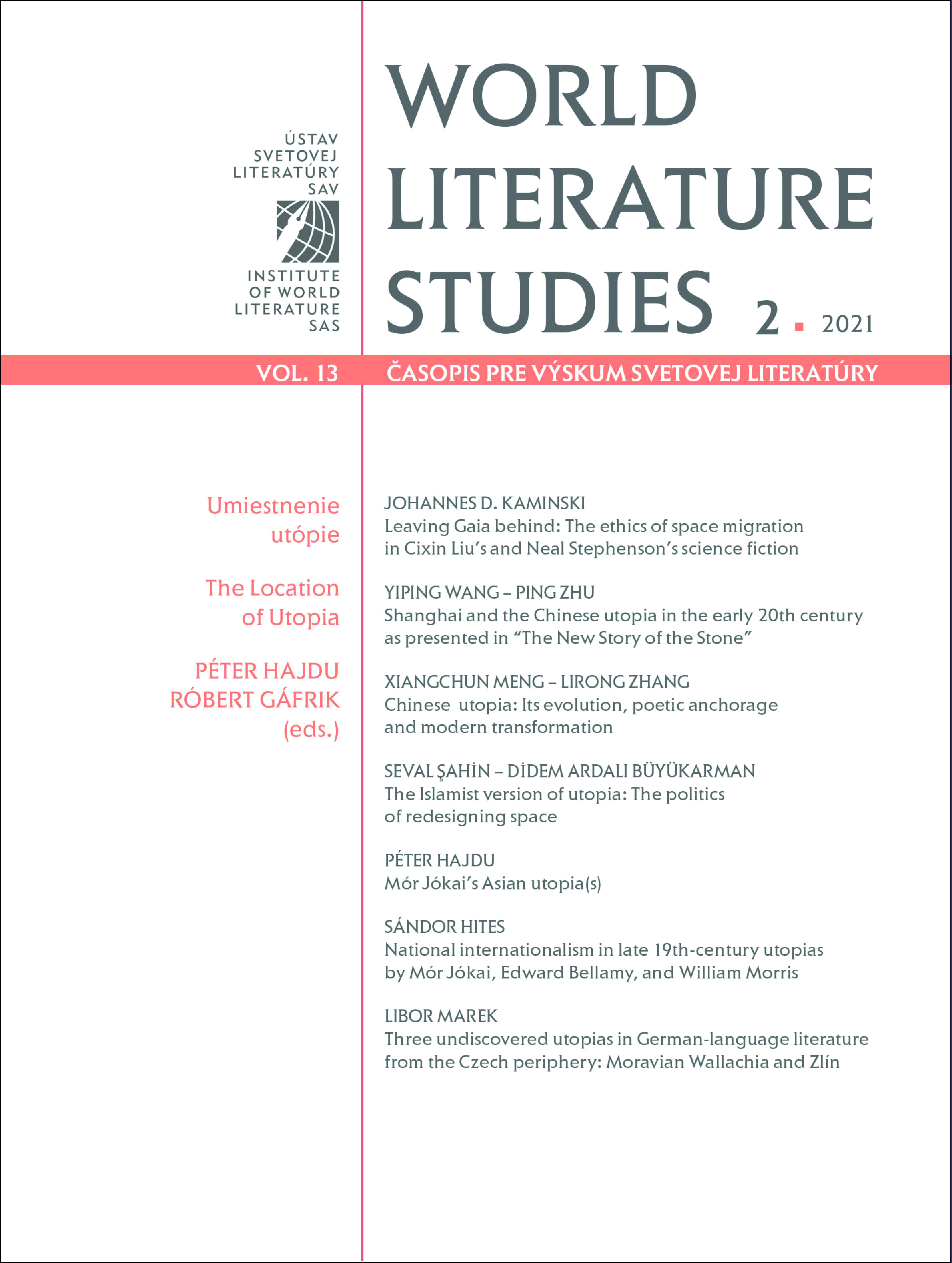Three undiscovered utopias in German-language literature from the Czech periphery: Moravian Wallachia and Zlín
Three undiscovered utopias in German-language literature from the Czech periphery: Moravian Wallachia and Zlín
Author(s): Libor MarekSubject(s): Language and Literature Studies, Studies of Literature, Comparative Study of Literature, Czech Literature, German Literature
Published by: SAV - Slovenská akadémia vied - Ústav svetovej literatúry
Keywords: Utopia; Dystopia; Susanne Schmida; Paul Zifferer; Walter Seidl; Zlín; Moravian Wallachia; Moravian-German Literature
Summary/Abstract: This study examines three literary utopias from the margins of German literature, namely German-language literature from Eastern Moravia. The works chosen for analysis are the dramatic cycle The City of People (Die Stadt der Menschen) by Moravian-born Austrian writerand visionary Susanne Schmida (1894–1981), the novel The Imperial City (Die Kaiserstadt) by the Austrian writer and diplomat Paul Zifferer (1879–1929), and the text “The City ofthe Future” (“Die Stadt des Kommenden”) by the German-speaking Czechoslovak author Walter Seidl. In all the texts examined, the model of urban landscape is used as the locationof utopia: the prototype of an abstract futuristic city (Schmida), Vienna as an exemplar of political utopia (Zifferer), and Zlín as a fully realized social utopia (Seidl). These three sites show a complementary gradation in the sense of the (potential) realization of utopian ideas, i.e. the belief that, put simply, “it was once good” (Zifferer), “it is good” (Seidl), and “it willbe good” (Schmida).
Journal: World Literature Studies
- Issue Year: 13/2021
- Issue No: 2
- Page Range: 81-98
- Page Count: 18
- Language: English

